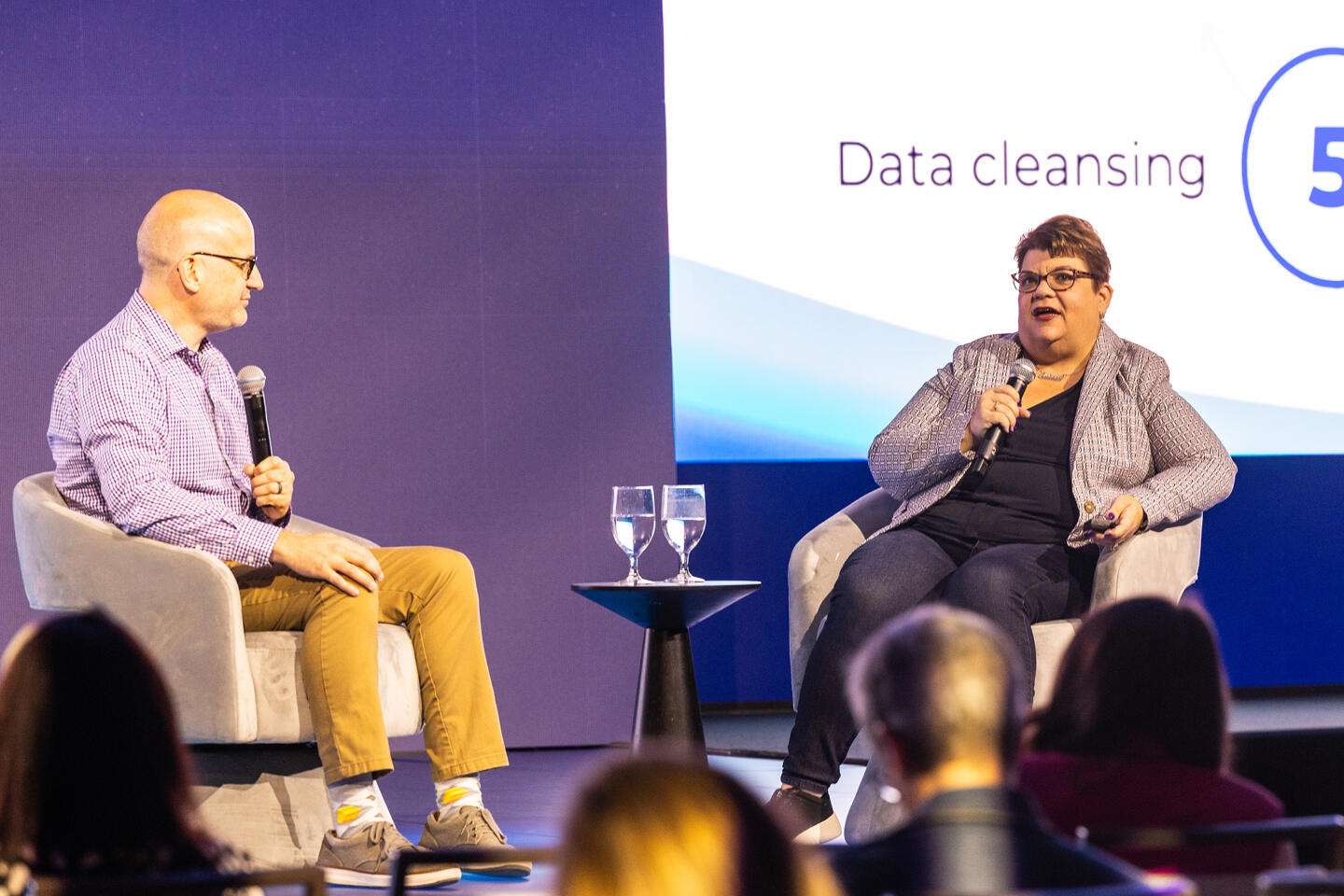
Thirty-six % of the obstacles corporations face with AI are data-related—and 28% of these stem from one thing surprisingly easy: poor information hygiene. It’s a transparent reminder that even the neatest instruments are solely as efficient as the information feeding them. That concept was entrance and middle at this 12 months’s Interact Boston through the session “Information is the brand new capital: Learn how to mine yours for gold.” The session featured insights from Melissa Rosen, VP of International Companies Gross sales at Bullhorn, and Tom Perso, VP of Data Know-how at Trillium Staffing. Collectively, they shared sensible suggestions, efficient methods, and hard-earned classes to assist organizations construct databases that really work for them.
Clear information takes a village
Information hygiene is as a lot about individuals as it’s about platforms. It shouldn’t be considered IT’s duty. As Perso famous, “All the best way right down to the tip consumer, they should take possession of the information they’re placing in.” Whether or not it’s recruiters including notes or gross sales groups logging calls, each touchpoint shapes the well being of your database. The extra every particular person sees themselves as an information steward, the stronger, cleaner, and extra dependable the system turns into.
You want a stable plan
Nonetheless, good intentions solely go up to now. “As quickly as you clear that information one week, it’s not clear the following,” Rosen explains. In actual fact, as much as 30% of an organization’s information can go stale in only one 12 months–an idea also known as “information decay.” With out a clear, constant upkeep plan, even essentially the most pristine database will shortly lose its worth.
The answer? Deal with information hygiene as an ongoing program, requiring routine upkeep. Meaning common audits, clear requirements for information entry, and the good use of automation instruments. When the method is woven into day by day workflows, information repairs will really feel like a behavior somewhat than a chore.
Let automation cut back the hassle
Guide entry is usually the place information hygiene begins to interrupt down, making automation and centralized oversight important. Automation can validate and deduplicate information, auto-fill lacking fields, and cut back the chance of human error. Extra than simply enhancing accuracy, automation provides groups the liberty to give attention to the extra significant, relationship-driven work.
“Recruiters and salespeople do what they do nice, which is having human interplay and a few of these gentle abilities,” stated Perso. That’s why automation ought to improve, not interrupt, their pure workflows: capturing cellphone calls, tagging emails, and logging interactions behind the scenes. “Have these interactions routinely introduced in and tagged to the precise particular person so that they don’t have to consider it…that makes them happier individuals.”
Enrichment—utilizing public information to maintain information present—and seamless integrations are additionally important to a streamlined workflow. Automated updates are highly effective instruments, however solely after they’re thoughtfully mapped, rigorously validated, and intently monitored.
However automation alone isn’t sufficient. Clear information could start on the level of entry, however sustaining it’s an ongoing journey. It begins with standardized information assortment, adopted by validation, deduplication, common cleaning (whether or not handbook or automated), and constant audits. Lastly, integrating information from on a regular basis instruments like e-mail, cellphone, and scheduling methods ensures accuracy on the level of entry. When information administration turns into seamless, your group can focus totally on what drives actual outcomes.
Do you have to throw out outdated information?
Many marvel what to do about outdated information. Admittedly, it may be a troublesome name. On the one hand, outdated information can litter your system and skew reporting. However deleting them may really feel dangerous. If a report hasn’t been touched for 2 years with no indicators of engagement, it doesn’t want to remain lively in your system—nevertheless it shouldn’t simply vanish into skinny air both. Archiving information offers peace of thoughts for everybody concerned. “I’ll say in Bullhorn, deleting a report is a gentle delete, which is nice. For those who do it flawed, it’s quite simple to return and un-delete it,” says Perso.
Begin small, win huge
Don’t attempt to repair every thing without delay. For those who try and overhaul your complete database in a single go, you’ll get overwhelmed—and so will your group. As a substitute, determine one or two downside areas. Possibly it’s duplicate information or lacking job titles. Clear these up first, and construct momentum via small, seen wins.
Think about appointing a “information champion”—somebody who can advocate for change, practice others, and maintain momentum. This function helps embed good information practices into on a regular basis routines, making clear information a shared duty.
Clear information powers outcomes
Clear information is the quiet pressure behind each good enterprise determination. It powers sharper insights, stronger relationships, and extra scalable progress. Although information hygiene isn’t really full, the precise methods—and the precise advocates—can flip your database from a lingering risk to a strategic benefit.
Wish to be taught extra about how one can optimize your small business’s information hygiene? Discuss to your Bullhorn account supervisor right now or be taught extra in our step-by-step information to information hygiene.



